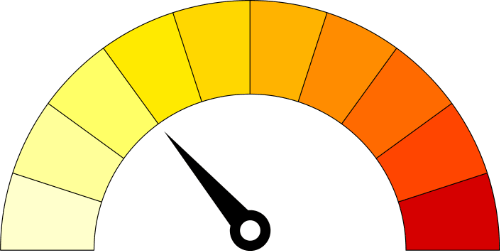This post is part of a larger deep dive
Curious about the role of engrams in To the Moon? Check out To the Moon Explained!
Or read the full To the Moon article!
This post is part of a larger deep dive
Curious about the role of engrams in To the Moon? Check out To the Moon Explained!
Or read the full To the Moon article!
Developer: Freebird Games
Publisher: Freebird Games
Genre: Adventure
Length: 4 hours
Year: 2011

Our rating

Your rating
Not being a fanatical gamer, I do occasionally fancy playing a video game every now and then (do people still refer to computer/console games as video games, or am I already too old?).
Most games I played were during my childhood and early youth and, I’m sorry to say, they weren’t the sort of games you had to think much: Ninja Turtles, Unreal, Street Fighter, Fifa, Carmargeddon (jeez, I cannot believe my parents let me play that last one…).
But it would be Final Fantasy VIII that would make me realise that that not everything is Bang Bang Shoot Shoot, and that video games can come with awesome plots coupled with fantastic gameplay. But this is not an article on FFVIII (although that day will come, I’m sure).
On my quest to find mind-bending games, I came across To the Moon which was mentioned as a relatively weird game on several forums I had visited. Having read mostly awesome reviews on the internet and seeing the overwhelming positive ratings it received in gaming websites (8 out of 10 in Gamespot, 81 out of 100 in Metacritic, 4 out of 5 stars in Gamesradar+) I decided to have a go at it and initiate a new section in our website devoted to video games.
Dr. Eva Rosalene and Dr. Neil Watts are two scientists employed by a firm called Sigmund Corp. Their job is to use cutting-edge technology to infiltrate artificial memories into the brains of comatose patients, who would like their wishes fulfilled before dying.
The two scientists visit their latest client, a man named Johnny Wyles, who is in a coma, and who had previously expressed his wish to go to the Moon, even though he could explain why.
Dr. Rosalene and Dr. Watts embark on a mysterious journey to John’s mind. While perusing Johnny’s memories in order to successfully transfer the wish, they discover the disturbing reason for his lasting wish.
I agree with most reviews in that the story was indeed poignant and original. No doubt many emotionally-sensitive gamers will not be able to prevent shedding a tear or two, depending on how attached you become to the storyline.
By alternating between John’s past memories and the present, the game has a certain dynamism that I found appealing.
Now what I did not like.
First off, I wouldn’t really call this a video game. I mean it is a computer game of course, after all, I played it on my computer. But I didn’t reeaaally “play” it – I have books that require more interaction than this game, and they are still categorised as books.
In fact, if you go to YouTube and watch someone else play the game, you will not lose anything at all for not playing To the Moon… The fact is, there isn’t anything particularly exciting about the gameplay that should make the experience of playing it special or noteworthy.
Second, moving the characters around was a real pain sometimes. It’s a point-a-click game where you mouse click wherever you want your characters to move, but the mechanics are not the best in my opinion.
Third, there are a few puzzles to complete, but they are so laughably easy and soooo repetitive that you end up doing them just to be able to progress with the story. There is 0 fun aspect doing the puzzles after the third or fourth one.
Just for reference, I had more fun playing the whack-a-mole game (!) at the fair (one of the rare mini-games in the game) than I had playing any other puzzle. And the whack-a-mole game was pretty bad!!
Despite the good narrative structure, I also found the dialogues a bit bland and superficial. Given the game creators’ wish to concentrate on the storyline, I think this could have been improved (I’m currently playing Kentucky Zero Route, and I find the dialogues superbly intricate). Even the story itself appeared to me a bit over-the-top, mostly because it striked me as too unnatural.
For example, when John’s brother dies, their mother gives John beta-blockers, a type if medication for heart disease. The rationale was that it would erase memories of the accident and everything before that.
First of all, I don’t think beta-blockers affect your memories. I’m by no means an expert, but a quick wikipedia search has this to say:
“Adverse drug reactions associated with the use of beta blockers include: nausea, diarrhea, bronchospasm, dyspnea, cold extremities, exacerbation of Raynaud’s syndrome, bradycardia, hypotension, heart failure, heart block, fatigue, dizziness, alopecia (hair loss), abnormal vision, hallucinations, insomnia, nightmares, sexual dysfunction, erectile dysfunction and/or alteration of glucose and lipid metabolism.”
Second, how would the mother know that it would erase memories? In fact, and more to the point, how on earth would the medication affect only those memories that he’s supposed to forget, namely from the birth of his brother until exactly his death? What about memories of his parents? His name? Language?
Also, why doesn’t River say anything about their previous encounter when they are older? Clearly, she wants to, because she is constantly leaving hints behind. The explanation seems to be that she may have had Asperger’s syndrome, a type of autism syndrome disorder.
Still, it seems unlikely that River would not say anything at all. Instead, she uses very subtle cues for Johnny to figure it out for himself, forever if it came to it, even though this is causing extreme confusion, pain and suffering to both of them.
Don’t get me wrong, I found some of the narrative ideas very interesting – For example, I’m a very taken with the idea of localising engrams and building artificial memories; see below.
However, the strategy to keep gamers engaged was essentially omitting information from the gamer. So, the characters would talk a bit like this: “Oh, so you haven’t told her about that thing?”. “No, I don’t think she will react well if I mention that thing.” “Hhhmm, but she should know about the thing”. “Yes, you are right, the thing will eventually be brought up”.
Of course, I’m exaggerating, but you get my point. Mystery relied on blatant omission, sometimes rather forcibly, which I found a bit amateurish.
Moreover, the game is purportedly meant to evoke emotions and feelings. Well, if that was really the intention, then I think the game developers chose the worst medium possible. As far as emotional expressions are concerned (which is a potent emotional trigger), you can barely make up the face of the characters, let alone their emotions.
And, look, I have nothing against the 8-bit-kind-of graphics they used in To the Moon. In a way, I do have a preference for minimalist graphics. But, again, I simply do not think the graphics were adequate enough for the kind of emotional response the game was supposed to evoke.
I’m fully aware of the praise this game has received and I know my review will not come down well with some players… However, I really have a hard time giving this game a high score when I feel it lacks in so many crucial aspects to the gaming experience.
Again, I should stress it has nothing to do with the graphics. As I already mentioned above, I even tend to prefer simpler graphics if the focus is on gameplay and an engaging story. But that was the problem for me. Gameplay mechanics was very poor: lack of puzzles to solve, poor controls; the story, even though potentially interesting, suffers from weak dialogues and contrived plot.
Some players have noted that To the Moon feels more like watching a movie than playing a video game. If so, then we all surely agree this game is hardly a video game… Perhaps a new category should be created for “games” like these?
Personally, I wouldn’t recommend it as a video game, so here, at Mindlybiz, To the Moon gets a rating of 1.5.
The game isn’t very easy to follow due to the fact that it is mostly being told in reverse timeline, with sporadic timeline jumps forward/backward. There are interesting bizarre moments, such as when the scientists tried to transfer the wish to the patient, but realise it did not work.
Furthermore, in order to create mystery, the developers omit important information which sometimes I found slightly forced.
Close to the end, there happens a major revelation that kind of places the entire narrative in context, so you won’t have the feeling something is left unexplained.
For that reason, To the moon gets a Bizarrometer score of 1.5.
Dr. Rosalene’s and Dr. Watt’s latest comatose patient, Johnny, has a last dying wish to go to the Moon.
When Johnny was little, he met a girl called River at a carnival. The two got along instantly, and Johnny promised her that in case they ever got separated, they would regroup on the Moon.
A few days after the fair, Johnny’s twin brother is accidentally killed by their mother. To cope with the distress of losing her favourite son, she administers beta-blockers to Johnny, effectively erasing his memories up to a few days after the accident, including his encounter with River.
Johnny later meets River at school but doesn’t remember her. The two eventually get married, but River cannot cope with the fact that Johnny doesn’t remember her. She tries to jolt his memory by crafting paper bunnies (they played a bunny-related game in their first encounter), but to no avail.
When River dies of an undisclosed disease, her death triggers the resurgence of the (unconscious) promise that Johnny had made to River when they were children: that if they got separated they would meet on the Moon. Thus, because River died, Johnny has the inexplicable urge to go to the Moon.
After failed attempts to inject in Johnny the wish to go to the Moon, Rosalene realises that the only way that Johnny is motivated enough to go to the Moon is by removing River from Johnny’s memories.
Despite Watt’s protests, Rosalene’s plan is ingenious.
She knows that the machine works by using Johnny’s desire to dictate his behaviour. In other words, it will be Johnny’s own desires and motivations that will generate his new life – the machine is only a tool that makes this transformation possible.
Johnny has subconsciously registered the promise he had made to River to regroup on the Moon, and it is Johnny’s unconscious that drives this desire to meet River on the Moon.
River appears in Johnny’s new life, at a point where she is needed. This serendipitous encounter is no coincidence at all. It is Johnny’s unconscious and willingness to join River on the Moon that is driving his memory of River to NASA, exactly when he is being assigned a team to go to Moon.
To manipulate Johnny’s memories, Dr. Rosalene and Dr. Watts use a machine that appears to create, erase or modify the physical substrates of those memories. These are called engrams, and are the topic of the next section.
Lovely article 🙂
Hi Ewan,
Thank you very much for your comment – I’m happy you enjoyed the article! 🤗